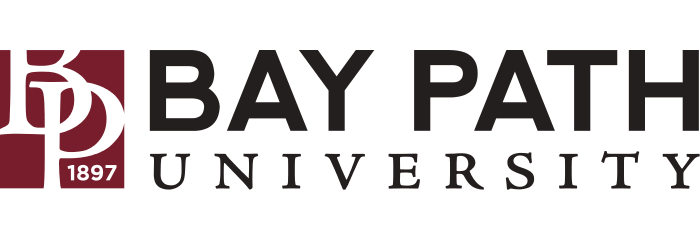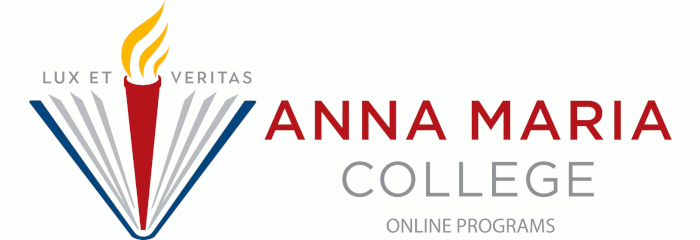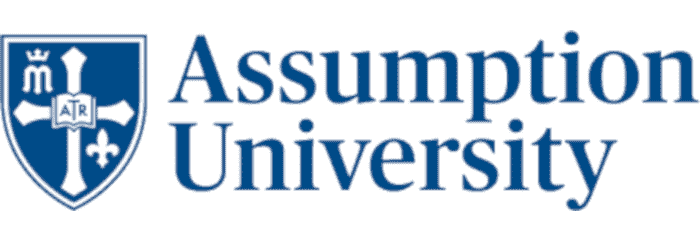2025 Best Online Substance Abuse Counseling Degrees in Massachusetts
If you are looking for an online substance abuse counseling degree in Massachusetts, you've come to the right place. Our list features a variety of online degrees in substance abuse counseling, including bachelor's and master's degrees that are designed to best prepare you with the necessary skills to address substance use challenges professionally.
Key Takeaways:
- Bay Path University takes the lead with the #1 online enrollment of 1,664 distance learners.
- There are two online bachelor's and one online master's in substance abuse counseling in Massachusetts.
As outlined in our methodology, we evaluated all degree levels to identify fully online substance abuse programs available in Massachusetts. While each school description highlights only one program, some Massachusetts institutions may offer additional programs in this field.
List Of Accredited Online Substance Abuse Counseling Schools
| School | Online Enrollment | Annual Tuition |
|---|---|---|
| Bay Path University | $19,235 | |
| Anna Maria College | 409 | $12,203 |
| Assumption University | 185 | $14,866 |
2025 Best Online Substance Abuse Counseling Degrees in Massachusetts
- Online Enrollment: 1,664 enrolled
- Annual Tuition: $19,235
- Locations: Longmeadow (and 1 other)
Online degree:
Why we like them: BPU takes the #1 spot on our list due to its solid online enrollment of 1,664 distance learners. With a large online presence, BPU presents a clear testament to its widespread appeal in the digital education landscape. The BA in Psychology with a concentration in Foundations of Alcohol & Drug Abuse Counseling at BPU requires the completion of 120 credit hours over a period of approximately 3.5 years. The program is structured to prepare you for careers in substance abuse counseling, with the option to earn graduate credit toward an MS in Clinical Mental Health Counseling.
- Online Enrollment: 409 enrolled
- Annual Tuition: $12,203
- Location: Paxton
Online degree:
Why we like them: AMC's Bachelor of Arts in Addiction Studies offers a contemporary curriculum grounded in psychology, covering theoretical and evidence-based concepts of addiction and recovery. It focuses on the mental and behavioral impacts of substance use on individuals and communities while addressing multicultural concerns. Available as both a major and minor, the program includes a specialized track for becoming a Licensed Alcohol and Drug Counselor Level 1 (LADC-1) in Massachusetts. It prepares you for careers in mental health counseling across various settings. For those seeking further specialization, the Master of Arts in Counseling Psychology and an Addiction Counseling Graduate Certificate are also available.
- Online Enrollment: 185 enrolled
- Annual Tuition: $14,866
- Location: Worcester
Online degree:
Why we like them: AU's MA in Rehabilitation Counseling requires 60 credits and can be completed online over 8 semesters or through a blended approach in a shorter duration. It is accredited by the Council for Accreditation of Counseling and Related Educational Programs (CACREP), ensuring a rigorous curriculum that encompasses individual and group counseling, medical and psychiatric rehabilitation, and disability management. We also appreciate AU's 100% recommendation rate from student surveys we've gathered as well as the fairly high graduation rate of 72%.
Overview of Substance Use Counseling Degrees in Massachusetts
Increasing rates of drug misuse and addiction are negatively impacting the residents of Massachusetts in a multitude of ways. Statistics show that nearly have been directly affected by the opioid epidemic. Researchers also in the state to rising healthcare costs, unemployment, and crime rates.
In response, city, county, and state officials have formed initiatives like the Massachusetts Opioid Abuse Prevention Coalition (MOAPC), implemented a prescription monitoring program, and developed a Naloxone distribution system. Healthcare providers and treatment facilities are expanding resources to address addiction, creating more demand for substance use counselors statewide. Aspiring professionals in this field have a unique opportunity to contribute to Massachusetts' efforts to combat addiction while pursuing fulfilling careers.
For students interested in joining this vital workforce, online substance abuse counseling degrees provide the knowledge and skills necessary to address addiction effectively. Online programs, in particular, offer the flexibility to balance education with other responsibilities while preparing graduates to meet Massachusetts’ growing need for qualified counselors. You may also consider online counseling degrees more broadly if you want to keep your options open.
For students concerned about the cost of education, affordability is key. Our list of the most affordable online substance abuse counseling programs highlights budget-friendly options.
FAQs About Substance Use Counseling Degrees in Massachusetts
What Can You Do With a Substance Use Counselor Degree in Massachusetts?
If you've completed a traditional or online substance abuse counseling degree program, you'll have opportunities to follow several different substance use career options.
For those who hold a bachelor's degree and want to provide direct substance use counseling in Massachusetts, you can become a Licensed Alcohol and Drug Counselor II (LADC II). With this license, you're allowed to offer addiction counseling under the supervision of more experienced counselors. If you hold a master's degree, you can practice independently as a Licensed Alcohol and Drug Counselor I (LADC I).
However, graduates are not limited to clinical counseling roles. You could also provide support for people suffering from substance use disorders by working as, for example, a community health worker or a health education specialist. Some of the daily responsibilities for these types of roles include overseeing treatment programs, developing educational campaigns, and fundraising.
How Do I Become a Substance Use Counselor in Massachusetts?
In Massachusetts, you have three possible paths to becoming a substance use counselor. The state's (BSAS) has established three levels of substance abuse counseling certification in descending order, from advanced to entry-level roles:
- A Licensed Alcohol and Drug Counselor I (LADC I) is licensed to conduct an independent practice of alcohol and drug counseling and to supervise counselors in training.
- A Licensed Alcohol and Drug Counselor II (LADC II) is permitted to provide alcohol and drug counseling services under clinical supervision.
- A Licensed Alcohol and Drug Counselor Assistant may provide recovery-based services under direct clinical and administrative supervision.
To earn the highest LADC I level of certification, you must hold a master's or doctoral degree in behavioral sciences, with at least 270 hours of training in the full range of substance addiction counseling subjects. You must also have 6,000 hours of supervised alcohol and drug counseling work experience, plus 300 hours of supervised practical training.
If you're interested in earning a master's degree online, you may want to review our lists of the best online substance abuse counseling master's degrees and the most affordable online substance abuse counseling master's degrees.
For LADC II certification, you must have completed at least 270 hours of training in the full range of substance addiction counseling subjects. You must also have 6,000 hours of supervised alcohol and drug counseling work experience, but that requirement drops to 4,000 hours if you hold a bachelor's degree in addiction counseling or something similar. You must also have 300 hours of supervised practical training.
Becoming a Licensed Alcohol and Drug Counselor Assistant requires only 50 hours of training in substance addiction counseling subjects. You must also have 2,000 hours of supervised alcohol and drug counseling work experience.
Applicants for all levels of substance abuse counseling certification must also pass the ADC exam. All licenses must be renewed every other year, and 40 hours of continuing education are required for renewal.
Does Massachusetts Have Reciprocity for Substance Use Counselors?
Yes, Massachusetts grants reciprocity for substance use counselors from other states. Licensed professionals in good standing may transfer their addiction counseling credentials to a comparable level of certification in the state. If you want to provide in-person or online substance abuse counseling in Massachusetts, you may submit an application to the BSAS. Pending a review of your current license, it's possible that you won't be required to retake any licensing exams.
How Much Does an Addictions Counselor Make in Massachusetts?
Data from the Bureau of Labor Statistics (BLS) states that the 17,290 substance abuse, behavioral disorder, and mental health counselors currently working in the state earn a . And in general, substance abuse counselors are rising in demand across the U.S. at a rate — — that's way above average.



